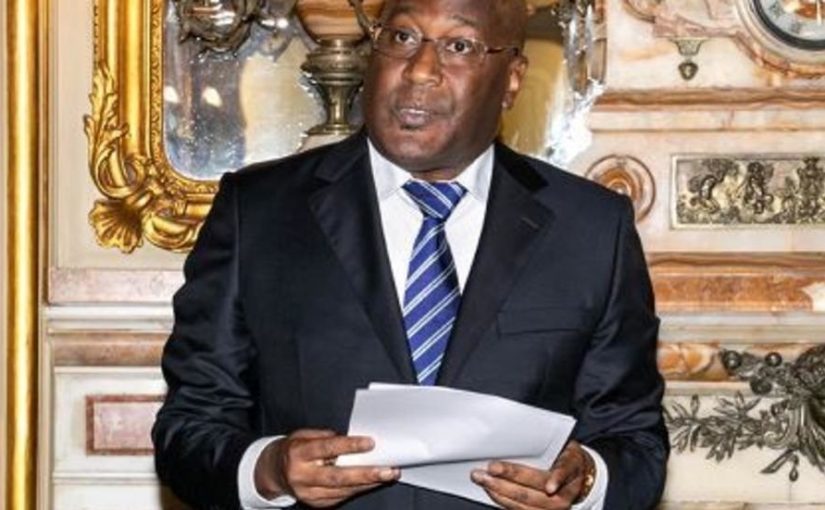Guinea-Bissau: Olympic Committee election process worries international bodies
CPLP: New director-general sees ‘worrying’ financial situation as priority

Photo: Rfi
-The new director-general of the Community of Portuguese-Language Countries (CPLP) has acknowledged that the organisation’s financial situation is one of the aspects that most concerns him at the start of his three-year term.
“It does worry me, because obviously the CPLP has to function, the executive secretariat has to function,” Armindo Brito Fernandes, a career diplomat from Sao Tome and Principe, told Lusa in an interview in the week he took office.
“There are ongoing projects … and activities that are foreseen. In September, we will have the summit of heads of state in Luanda and Angola will preside over the CPLP from September.”
The concern is one shared with “all the member states”, he added.
As one of his first steps as director-general, therefore, Brito Fernandes is “in the coming days” to contact the ambassadors representing the member states at the CPLP in Lisbon, with a view to raising topics including unpaid membership fees on the part of some.
As for the delay in the payment of fees by his own country, Sao Tome, the diplomat said that he had raised the issue even before taking office, at a public ceremony that took place last Monday, at CPLP headquarters in Lisbon. He said he had made “an approach” to Sao Tome’s prime minister, Jorge BomJesus, as well as to the president, Evaristo Carvalho, and to the speaker of parliament, Delfim Neves.
“Obviously, we have made a commitment to the CPLP in its current context, of its functioning, of the challenges, and we also raise the issue of contributions,” he said, adding that he had received guarantees from the government that the fees will be paid soon.
In general, he said, “there is a willingness of states to do everything to see this issue resolved.”
Otherwise, he warned: “we would be compromising the functioning of an organ as important as is … the [CPLP] executive secretariat, which it is responsible for implementing the decisions of the other statutory bodies, of the conference of heads of state, the council of ministers, the conciliation committee.”
Asked which countries are late with their contributions, the diplomat declined to say.
He did, however, say that the organisation of the summit of heads of state and government scheduled for 2 and 3 September in Luanda is not at risk.
In addition to the financial issue, the new director- general said that there is a process that has already been started and which seems to him “necessary to conclude” relating to “the institutional strengthening of the executive secretariat”. Another one is the status of CPLP employees.
“This is something very important in the light of the headquarters agreement” that the organisation established with Portugal at the time its headquarters was settled in Lisbon. During his time in office, he said, he therefore promises to give “very particular attention to the executive secretariat, its functioning, its organisation and the clear definition of the status of employees of the CPLP, their rights and duties.”
In this context, he advocated a broader mandate for the executive secretary, whose current term of two years may be too short to undertake the necessary tasks.
At present the post of executive secretary is held by a career diplomat from Portugal, Francisco Ribeiro Telles. The position is held successively by CPLP member states alphabetically, for two years, but the normal practice has been for each executive secretary to serve two consecutive terms.
However, after a proposal from Portugal, in 2017 a nominee from Sao Tome (Maria do Carmo Silveira) succeeded that of Mozambique (Murade Murargy) for a single term, followed by two years by Ribeiro Telles, to the end of this year.
Brito Fernandes also said that he intends to engage “in the development of other activities linked to the three pillars of the CPLP: political and diplomatic consultation, cooperation at all levels and the promotion of the Portuguese language.”
The CPLP’s member states are Angola, Brazil, Cabo Verde, Guinea-Bissau, Equatorial Guinea, Mozambique, Portugal, Sao Tome and Timor-Leste.













Leave a Reply
Be the First to Comment!
You must be logged in to post a comment.
You must be logged in to post a comment.